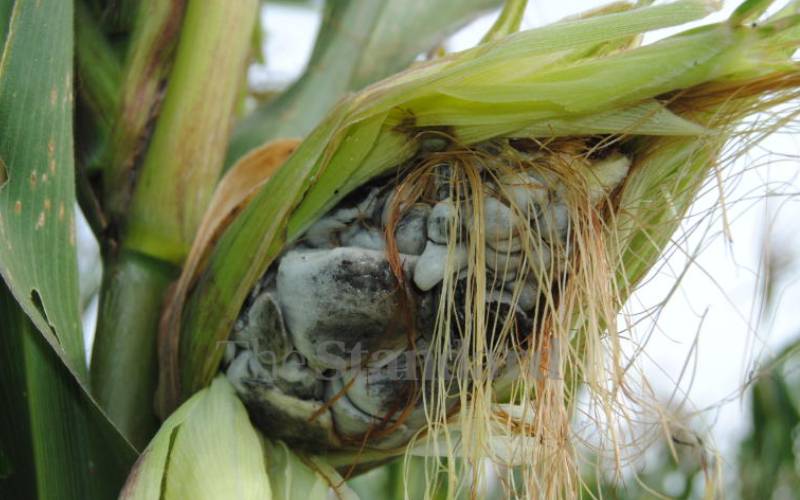×
The Standard e-Paper
Fearless, Trusted News

Head smut affect pollination. [Robert Kiplagat, Standard]
Maize farmers fear a drop in yields due to a fungal disease, months after delayed rains disrupted the planting season. Some farmers have reported existence of head smut, which affects pollination, thus reducing crop productivity.